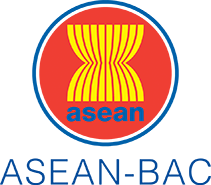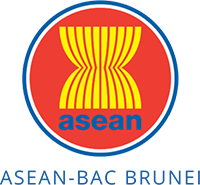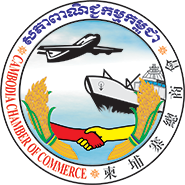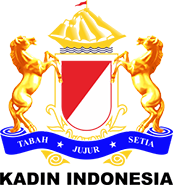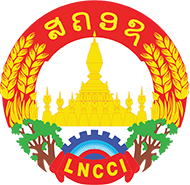summary
December 22nd 2021
8th Webinar: Promoting ASEAN-Japan Collaboration for Human Resource Development
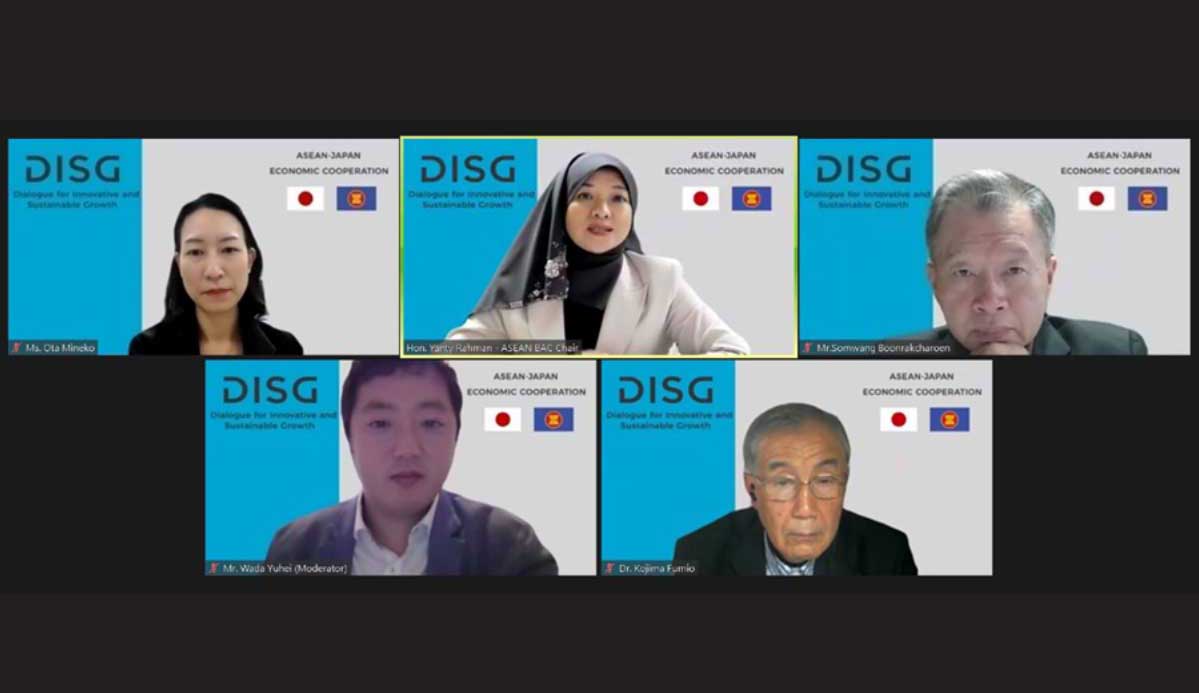
Agenda
1. Keynote speech from Chair of ASEAN Business Advisory Council (ASEAN-BAC) 2021
2. Panel discussion between ASEAN-BAC, Waseda University, Thai-German Institute and METI
Speaker
-
Ms. Yanty Rahman
Chair of ASEAN Business Advisory Council (ASEAN-BAC) 2021 -
Dr. Kojima Fumio
Guest Professor, Waseda University/Technical Expert, DENSO Corporation, Japan -
Mr. Somwang Boonrakcharoen
Senior Advisor, Thai-German Institute, Thailand -
Ms. Ota Mineko
Director, Technical Cooperation Division, Trade and Economic Cooperation Bureau, METI, Japan
Moderator
-
Mr. Wada Yuhei
Chief Representative, AMEICC Secretariat/Chief Representative, AOTS Bangkok
Webinar Summary
(Keynote Speech)
Ms. Yanty Rahman, Chair of ASEAN Business Advisory Council (ASEAN-BAC) for 2021 stated that the pandemic has given us a call to return to the basic, which is to invest in human resources as we are living in a much more digital world where the changing nature of work requires relevant skill sets. Perhaps, the greatest challenge for the region is to maintain its growth momentum while ensuring inclusivity especially, in changing times marked by rapid technological advancement. Thus, it is critical to prepare and nurture our youth as well as workforce through skills development in response to the actual needs of today’s industry.
Then she presented the ASEAN BAC Brunei’s legacy project called “Harnessing Impact with Resilient Employability Digitally (HIRED)” with the urgency to equip ASEAN youths and workforce with the right skill sets in preparing for a digitally and future ready nation. The HIRED project is seeking to expand across the ASEAN region and beyond and welcome collaborations across all stakeholders. Businesses and Institutions in Japan can collaborate on the digital skills training and mentorship programmes through their share of expertise on research and development and technology transfer as Japan is indeed a great role model of their HRD.
(Panel Discussion)
At first, Dr. Kojima Fumio from Waseda University/Denso, Mr. Somwang Boonrakcharoen from Thai-German Institute and Ms. Ota Mineko from METI shared their initiatives and insightful views on the significance of HRD, followed by discussion on three topics below.
The 1st topic was “the Strengths of Japanese HRD”. Ms. Yanty shared Japan’s initiatives in HRD as one of the leading countries in technology to look forward to continuing technology transfer programs with ASEAN and beyond. Dr. Kojima stated that Japan can contribute to ASEAN in harmonizing human efficiency and automation as a driving force to advance the manufacturing system and introduced ‘Lean Automation System Integrators (LASI)’ programme in Thailand as an example. Then Mr. Somwang expressed the awe for Japanese OJT, systematic design, discipline in training, linking knowledge, and also skill and working system like Kaizen. In return, Ms. Ota introduced the technical cooperation and HRD implemented by METI aiming to create a mutually beneficial, and a sustainable win-win relationship where each stakeholder benefits and can grow together.
The 2nd topic was “Utilizing Digital Technologies for HRD”. Mr. Somwang shared increasing demand for training utilizes digital technologies because of Thailand 4.0 policy. In relation with Mr. Somwang, Dr. Kojima introduced ‘Lean IoT Plant management and Execution (LIPE)’ programme which aims to train people enable to use digital technology such as IoT and AI in manufacturing with reasonable price even for MSMEs. Ms. Ota shared the Japanese government current efforts on supporting HRD at various stages, aiming at emerging countries to digitalize their supply chains. Ms. Yanty welcomed collaboration, including METI and AOTS especially on mentorship in areas of utilized ICT tools through collaborative programs of internship opportunities with local Japan-affiliated companies.
The 3rd topic was “Expand HRD Activities intra/outside ASEAN”. Mr. Somwang introduced the project called ASEAN Smart Monozukuri which expand HRD programme including LASI and LIPE across ASEAN. In relation with this, Dr. Kojima shared the need to modularize the curriculum such as LASI and LIPE, content and expand it not only to Thailand and ASEAN countries but also to other emerging countries to increase the number of trainees. Ms. Ota then introduced the expansion of the LIPE project for realizing industry 4.0 to Kenya, and the Japanese government efforts to train local trainers who can train human resources in their own countries, hoping to see an increase in the number of training programmes conducted within ASEAN and other regions, with such ASEAN industrial personnel serving as instructors.
Keynote Speech
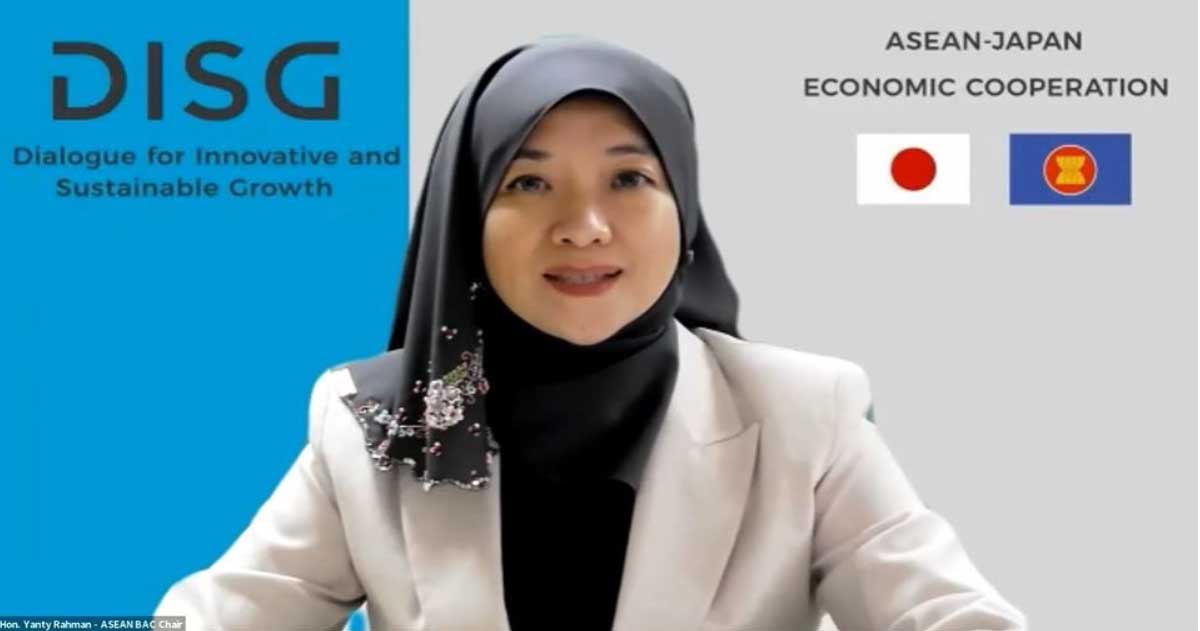
Ms. Yanty Rahman, Chair of ASEAN Business Advisory Council (ASEAN-BAC) stated that the pandemic has given us a call to return to the basic, which to invest in human resources as we are living in a much more digital world where the changing nature of work requires relevant skill sets.
In the last 50 years, ASEAN has significantly made great socio-economic progress. In 2020, ASEAN placed as the fifth largest economy in the world. However, today, ASEAN’s average indicators of education, skills development, and health are below of what is expected given ASEAN’s income levels. There are the huge developmental gaps in education, healthcare and the lack of relevant skills. These persistent gaps can undermine future growth and prosperity in the region. Perhaps, the greatest challenge for the region is to maintain its growth momentum while ensuring inclusivity especially, in changing times marked by rapid technological advancement.
The gap still remains, and benefits of digitalization are unevenly spread across the region. We identified mutual challenges across ASEAN such as lack of digital skills, expensive or poor internet connection and accessibility to affordable digital devices still impedes our journey of digitalization. Thus, it is critical to prepare and nurture our youth as well as workforce through skills development in response to the actual needs of today’s industry as ASEAN sets to become the world’s fourth largest economy by 2030.
With the urgency to equip ASEAN youths and workforce with the right skill sets preparing for a digitally and future ready nation, I am pleased to present the ASEAN BAC Brunei’s legacy project called “HIRED” or Harnessing Impact with Resilient Employability Digitally. The legacy project aims at strengthening the human capital and tomorrow’s workforce through skills development for the future of work. It is a Public Private Partnership initiative that harnesses existing and new initiatives nationally and regionally to align complementary objectives in supporting our four goals; (i) to address the skills gap in ASEAN, (ii) to bridge skills within ASEAN, (iii) to build a proper ecosystem, and finally (iv) to enable ASEAN to balance the supply and demand of its workforce.
Businesses and institutions in Japan can collaborate on the digital skills training and mentorship programmes as Japan is indeed a great role model of their efforts in promoting HRD as well as their great strength in-depth of research and development, training programmes and know-how through technology transfer. We highly welcome collaborations with knowledge partners, key industry champions, trainers, employers, institutions to join us in striving for the future we want to see in our workforce.
To end, we believe in investing our human resource to ensure that we are not leaving anyone behind and improving the lives of the community. We, both government and the private sector with all stakeholders working together, as we are ASEAN as one community, can only remain committed, deliberate, persistent as it is critical to the ASEAN future as one. Let us continue to work together towards a prosperous and sustainable ASEAN-Japan future.
Please click here for video regards to HIRED
Panel Discussion
Short Presentation
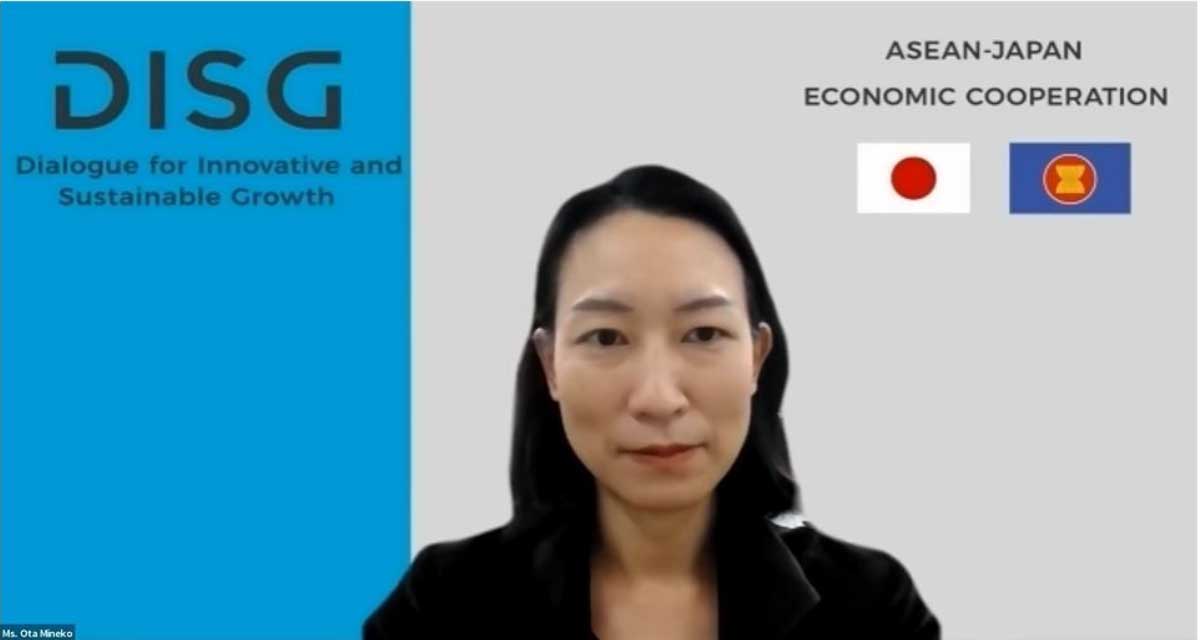
Ms. Ota Mineko, Director, Technical Cooperation Division, Trade and Economic Cooperation Bureau, METI, Japan introduced METI’s technical cooperation in ASEAN region regarding HRD. METI conducts 2 different approaches for technical cooperation: 1) developing industrial HRs in emerging countries, and 2) building a better business environment in emerging countries.
Through the technical cooperation, METI aims to have a positive cycle between Japan and partner countries. This cycle includes: 1) Japanese companies with advanced technologies and know-how try to start businesses in emerging countries. However, 2) when they go into emerging countries, they face challenges in businesses, such as lack of skilled HRs and difficulty in business environment, so 3) METI promotes technical cooperation including developments of HRs and improvements of the business environments with Japanese private sectors. Through the technology transfer from Japan, 4) more Japanese companies succeed in further expansion of their businesses.
METI has been conducting training programmes in cooperation with the AOTS (the Association for Overseas Technical Cooperation and Sustainable Partnerships). Since 1959, more than 200,000 trainees have participated from ASEAN region. In this programme, the trainees first learn the Japanese language and culture, then they join on the job training (OJT) to learn specific technologies such as production technologies and management techniques at Japanese companies. In the Experts Dispatch Programme, experts are dispatched from Japanese companies to emerging countries and provide trainees on-site trainings to improve their skills and knowledge. Even under Covid-19 pandemic, METI continues to conduct these programmes remotely by utilizing digital technologies.
As the collaborative programme with local academia, METI supports Japanese companies which organize special courses on advanced technologies such as automation, AI, IoT, and robotics at local universities. In 2021, 9 out of 11 courses were organized at ASEAN universities.
METI also supports system transfer to emerging countries in order to address challenges related to business environment there, since Japan has advanced systems such as factory automation, industrial certification, and safety. In 2021, 30 out of 46 programmes were conducted in this region.
Japan and Thailand are deepening cooperation in HRD toward upgrading manufacturing industries. METI's efforts by providing multilayered HRD programmes in Thailand will be good role models of industrial development cooperation for the realization of industry 4.0 even in different countries.
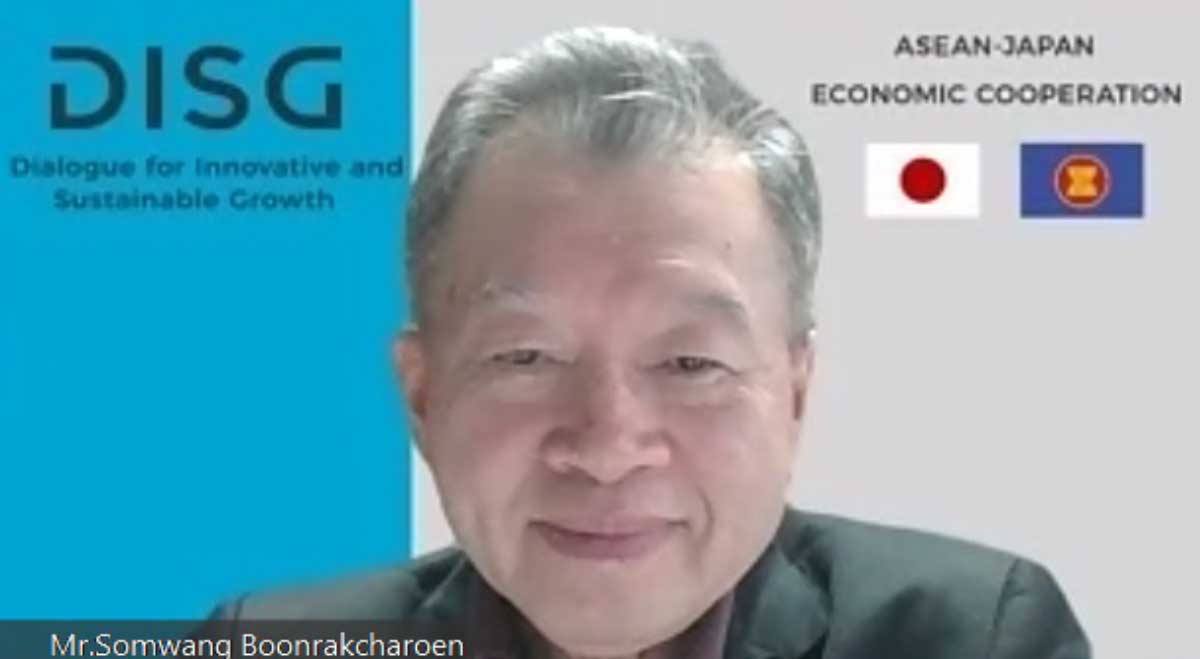
Mr. Somwang Boonrakcharoen, Thai-German Institute, Thailand explained the background of Thai-German Institute (TGI) regarding HRD for the Thai manufacturing industry and why TGI gets involved in ASEAN-Japan collaboration for HRD.
TGI is an autonomous institution with its operation under the supervision of the Foundation for Industrial Development and a broad oversight by the Ministry of Industry, Thailand. TGI mission is to strengthen and enhance the competitiveness of Thailand’s manufacturing industry through advanced technology covering the entire production process from design to maintenance. One of the major activities/services of TGI is training, offering to 6,000 industrial workforces annually who are engineers or technicians in the factories.
In order to upgrade the Thai industry to the industry 4.0, TGI has developed the smart factory model as a training course to provide consultancy services for developing the factory to become a smart factory. There are 9 technologies related to the industry 4.0 which the TGI focuses on (e.g., autonomous robots, simulation, horizontal and vertical system integration, industrial IoT, cybersecurity, cloud, additive manufacturing, augmented reality (AR), as well as big data and analytics).
Regarding the TGI’s involvement in the ASEAN-Japan Collaboration for HRD, its mission is open for all the customers in the manufacturing industry and TGI’s customers and partners are mainly Japanese affiliated companies in Thailand particularly in automotive and electronic fields such as SANMEI ROBOTIC ACADEMY, Mitsubishi and DENSO etc. Furthermore, the TGI’s cooperative projects with the AOTS so-called Lean Automation System Integrators (LASI) and Lean IoT Plant management and Execution (LIPE) were also introduced. To expand these training programmes to CLMV countries in cooperation with the AMEICC was also planned now. In addition, with the support from JICA and TICA, the third country training programme for skill development for material processing for Mekong countries was also organized as a five-year programme.
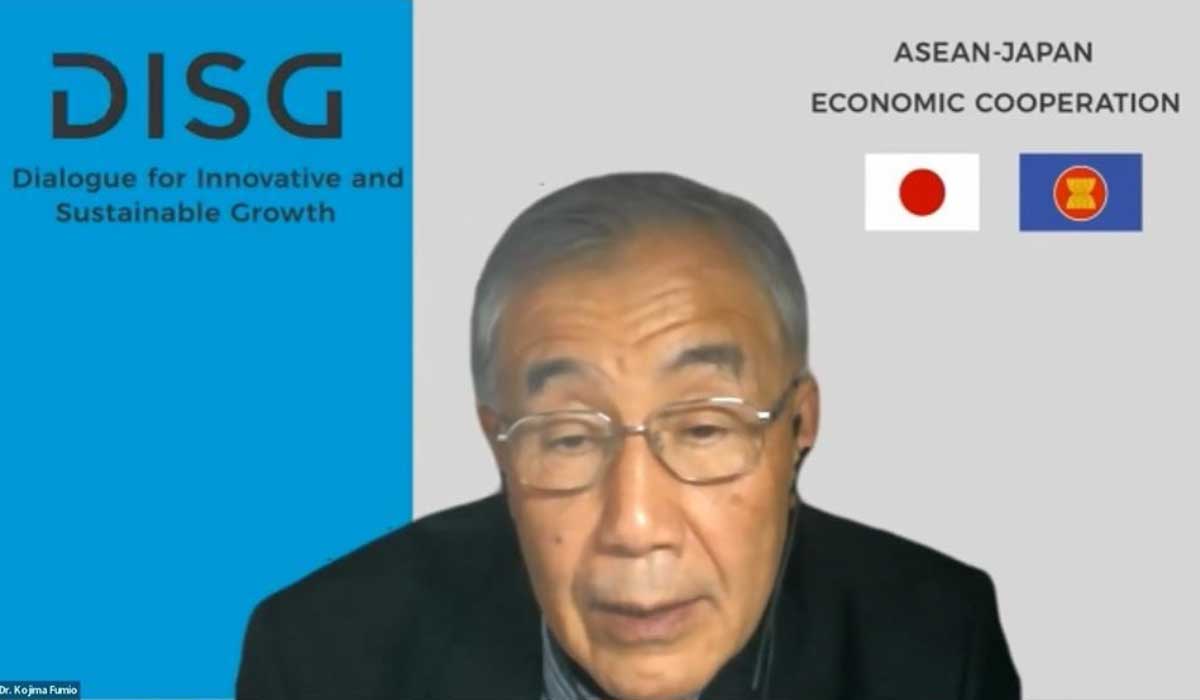
Dr. Kojima Fumio, Guest Professor, Waseda University/Technical Expert, DENSO Corporation, Japan, introduced the HRD activity focused on Japanese Lean Monozukuri in Thailand. Japan established competitive lean manufacturing so-called Japanese Monozukuri in the era of industry 3.0. Based on this, industry 4.0 utilizes advanced technologies such as IoT, AI, Robot. We’re trying to establish “ASEAN new Monozukuri” as the next step aiming at being a global manufacturing center.
According to “Smiling Curve” by Stan Shih, added value of manufacturing seems small in value chain. However, we enhance it by lean manufacturing in industry 3.0 and raise up manufacturing value much more through the utilization of 4IR technologies. We already realized in the fields of automation and IoT in Thailand. This is the value of Japanese Lean Monozukuri in terms of competitiveness.
In the robotics field, ASEAN is not in the world leading situation now, and even regarding Thailand which is an advanced country in ASEAN, the robot introduction speed is half of China. In order to catch up and become the world leading position, the high value automation with “Lean” concept is needed for ASEAN. Based on this background, Lean Automation System Integrators (LASI) training programme was established in 2018 in Thailand first to promote Lean robotization automation for system integrators.
Besides, Lean IoT Plant management and Execution (LIPE) training programme was also launched in 2020 to promote effective IoT utilization for SMEs with lean way. For SMEs, IoT introduction is a big challenge. Thus, LIPE teaches how to select and use IoT devices suitably for data management and improvement activities with affordable cost. In LIPE training, trainees learn how to identify bottleneck with analysis based on data from IoT and can propose KAIZEN ideas.
Back to LASI programme, this is an education to learn competitive automation by Lean approach. In Lean automation method, we eliminate MUDA (waste in Japanese) in manual process at first, and then move forward to automation. Therefore, cost-effective automation by utilizing smart, simple, and slim structure and control can be realized. In one case, Lean automation achieved productivity improvement of 30 percent.
LASI and LIPE training programmes are beginning to take root in Thailand, with the expectation to expand to ASEAN countries and other emerging countries and return to Japan in the future.
Pillar 1: The Strengths of Japanese HRD
-
Ms. Yanty:
As the world’s 2nd biggest economy for many years, the Japanese government and business associations have helped countries within and outside ASEAN in enhancing their national science and technology and socio-economic development over the years. As one of the leading countries in science and technology, we look forward to Japan’s continuing “technology transfer” programs.
We fully support the “heart-to-heart” principle which was used in the Tokyo Declaration in 2003, to build trust and confidence among us as we forge stronger cooperation in HRD through technology transfer, focusing on the importance of serving the needs of ASEAN peoples towards sustained prosperity.
-
Dr. Kojima:
Based on the experience in ASEAN where still dominated by a mixture of human efficiency and automation, how to promote effective operation of workers and automation system are important issues. Japan even now has many strengths in automation and operation technologies, henceforth, by utilizing IoT and digital technologies to harmonize the manufacturing system and rationalization focusing on both human and automation would be of importance.
In this context, Japan can contribute to deepening automation to the ASEAN member states. In terms of the human aspect, we have strong manufacturing technologies, so harmonizing these two activities would be a key accomplishment from now on.
-What is the meaning of LEAN (Live question to Dr. Kojima from audience)? -
- Dr. Kojima:
“LEAN” is the term that comes from the elimination of MUDA, which means waste or loss in Japanese. Therefore “LEAN” manufacturing is an effective way to make manufacturing area leaner as well as to enhance productivity and quality dramatically.
- Mr. Somwang:
We impressed by the strong Japanese OJT, systematic design, training discipline, knowledge linkage, and also its skill and working system like Kaizen or 5 Gens methodology, such as Genba (actual place), Genbutsu (actual thing), and Genjitsu (actual fact) etc. in the training in order to work in the factory.
- Ms. Ota:
The technical cooperation and HRD implemented by METI are a collaboration among industry, government, and academia in both Japan and the partner countries, aiming to create a mutually beneficial, and a sustainable win-win relationship. For efficient and strategic technical cooperation, we strive to implement technical cooperation based on the needs of local governments and companies by defining priority areas that match their interests and needs. We will further develop industrial human resources not only in the manufacturing sectors but also in the service sectors, and will respond to new needs and values such as digital transformation, carbon neutral, and SDGs.
Pillar 2: Current Situation for Utilizing Digital Technologies for HRD and its way forward in the future
- Mr. Somwang:
Because of Thailand 4.0 policy we have to utilize digital technologies, especially, for 9 pillars of industry 4.0 technology in our training. In TGI training courses, there are more requests for this kind of training course from our customers, such as Lean Automation System Integrator (LASI) and Lean IoT Plant management and Execution (LIPE) courses that we have developed with the AOTS and other partners include Denso Corporation. As LASI and LIPE courses are the most popular, this year we trained more than 300 participants.
- Dr. Kojima:
As for LIPE, we started by promoting the basic use of IoT as a course for beginners who are industrial engineers. For those who have passed this stage, the knowledge in more advanced digital technology would be offered. Particularly in LIPE expert course, which is scheduled to start in February next year, it aims to train people who can understand digital manufacturing by incorporating AI technologies and motion analysis methods. We try to develop skills making use of IoT effectively in manufacturing for local Thai industry.
- Ms. Ota:
Traditionally, HRD has been focused on teaching the basics of manufacturing, but now we are aiming to support emerging countries to digitalize their supply chains as well. In addition to supporting the installation of factory automation and IoT, we will also support the development of human resources for digitalization at various stages, including related services such as logistics and maintenance. We also focus on supporting special courses on digital technologies at local universities and IT related courses held in Vietnam and Cambodia are good models for organizing such courses in other ASEAN universities.
-How can Japan collaborate with ASEAN business sector especially for HIRED and Japan’s technical cooperation policy?-
- Ms. Yanty:
HIRED focuses on providing digital skills training and mentorship programmes, however, there is a lack of the mentorship programmes. We seek interest to welcome collaboration including METI, in tapping the wealth of expertise through AOTS especially, on mentorship in areas of utilized advanced ICT tools through collaborative programs of internship opportunities with local Japan-affiliated companies. Also exchanging programmes through remote training with experts from Japanese companies with local academia promoting youth exchanges through networking among research institutes, universities and other educational institutions could further enhance people-to-people interactions reinforcing partnerships and mutual assistance in human resource development.
Pillar 3: Current Situation or Future Plan to expand HRD Activities intra/outside ASEAN
- Mr. Somwang:
TGI is currently working on the project so-called ASEAN Smart Monozukuri (ASM) supported by the AMEICC secretariat, consisting of 2 courses which are LASI and LIPE. We are trying to standardize all elements in order to transfer to other ASEAN countries and also establish the training networks and training centers for the continued HRD activities in the future.
- Dr. Kojima:
Although the contents that we are currently teaching at LASI and LIPE are beneficial for ASEAN, some additional operations are still needed. For instance, there is a need to modularize the curriculum contents of the education and expand it not only to Thailand and ASEAN countries but also to other emerging countries for the expansion in the number of trainees. It is hopeful that prospective HRD programmes/activities other than LASI and LIPE can also be supplied from Japan in the future. In this regard, AOTS and AMEICC could be key umbrellas to support and promote this kind of HRD activities of Japan’s Monozukuri technologies in ASEAN and expand to other emerging countries.
- Ms. Ota:
We are working on the expansion of the LIPE project for realizing industry 4.0 to Kenya, which is being implemented in Thailand. The situation in Africa is different from that in ASEAN, as are the circumstances of the countries and the extent to which Japanese companies have made inroads into the region, however using successful examples from ASEAN as role models is an effective approach. We will continue to collaborate with Japanese companies in the implementation of projects that will enable inter-regional development.
The Japanese government is also making efforts to instruct local trainers who can train human resources in their own countries. In some projects, Thai trainees who have received Japanese technical training have become instructors and are teaching locally. We hope to see an increase in the number of Japanese style training programmes conducted within ASEAN or between ASEAN and other regions, with such ASEAN industrial personnel serving as instructors.
- What kind of action is expected as Japanese private company regarding HIRED programme (Live question to Ms. Yanty from audience)?-
- Ms. Yanty:
Because of the fact that the majority of workforce comes out from universities, it will never match what industry actually requires, thus we have a big gap all the time. In order to upskill them, we need to really hear from the company, employer side, what are the things that are required from these mentees, this is what we need Japanese companies to tell us.
We put whatever it is being given as feedback from companies as a part of the programme so that we can actually have competency standards from that feedback, and mentees can go and apply to the companies that provide this standard that match them. It is a long process, but a necessary one.
Final Remarks
- Ms. Yanty:
The catch-up challenge of ASEAN workforce in terms of preparedness towards 4IR is immense and truly daunting. But with credible and sincere partners like the Japanese government and business sector, we should never be intimidated. We look forward to quick wins projects and cooperation that can easily be rolled out and impact our workforce positively sooner than later. Let us care and recover, stronger together, towards a resilient, inclusive and a sustainable ASEAN-Japan future.
- Mr. Somwang:
We have learned a lot working with the AOTS on the projects that we have worked together that generate great benefit to Thai industries. The survival skill in the VUCA (Volatility, Uncertainty, Complexity and Ambiguity) world is learnability skill, that we have to learn from each other and adapt to apply in our context of work to improve and enhance our competitiveness.
- Dr. Kojima:
As aforementioned, “Lean” would be a keyword for the future of the manufacturing sector. I hope that we will keep on working and contributing together with Japan Lean Monozukuri.
- Ms. Ota:
METI’s technical cooperation aims to establish a mutually beneficial relationship between Japan and partner countries. We recognize ASEAN countries as Japan's important partners that can create new values together, and hope that we will continue to collaborate with ASEAN countries to conduct meaningful technical cooperation.



